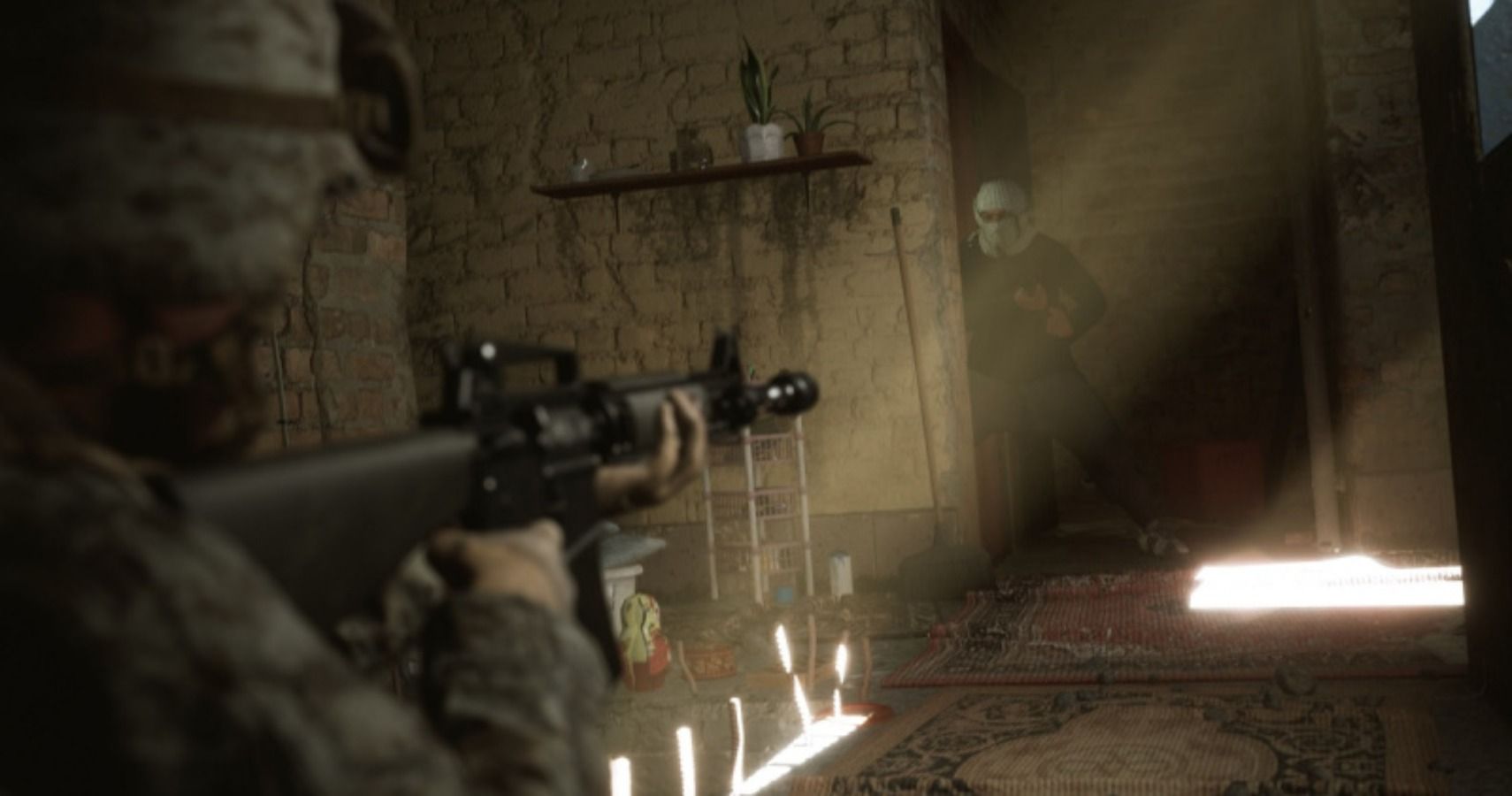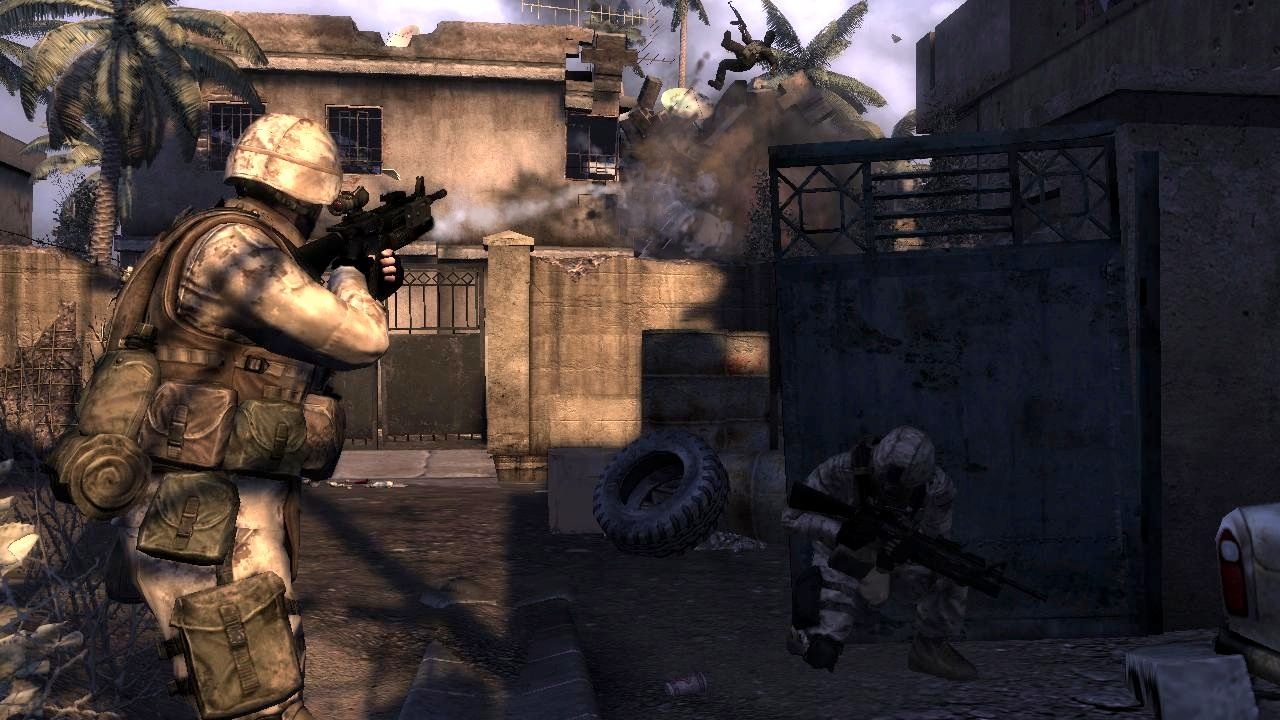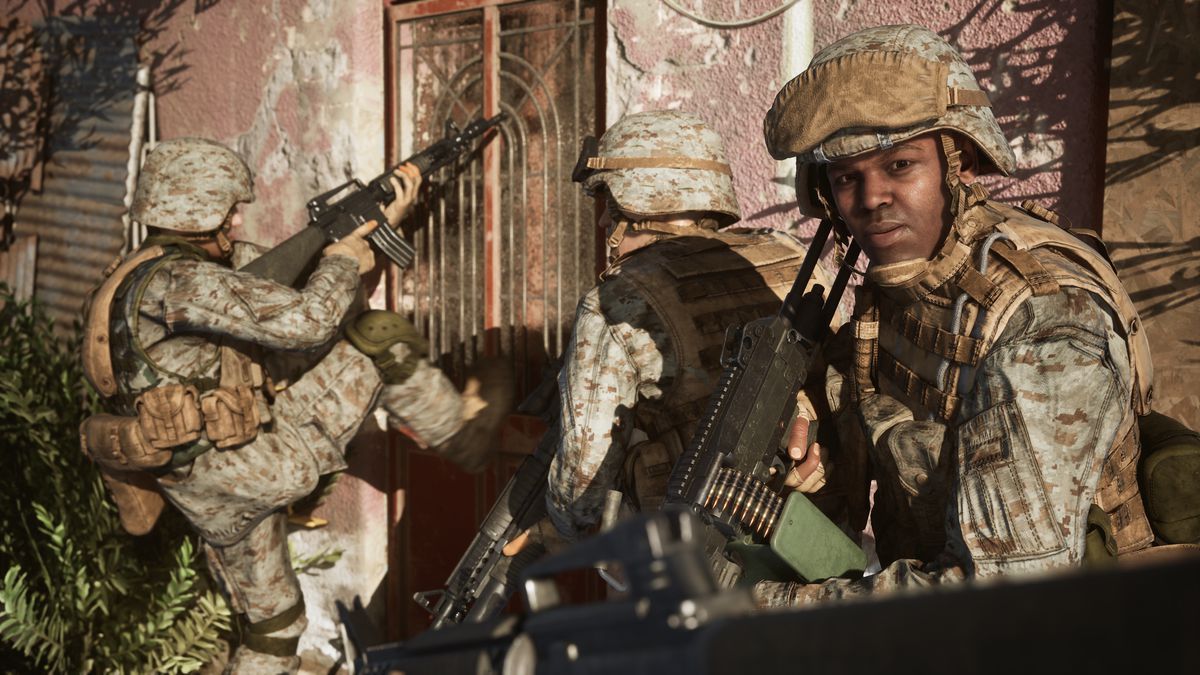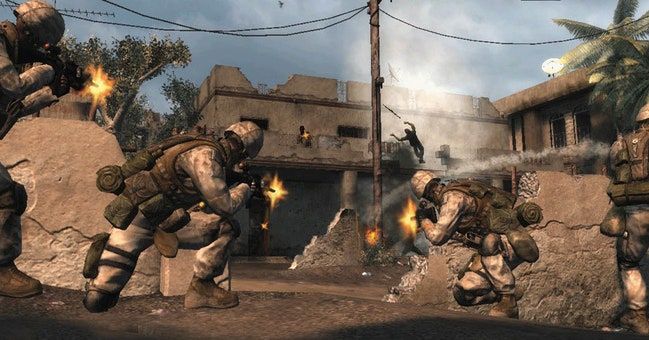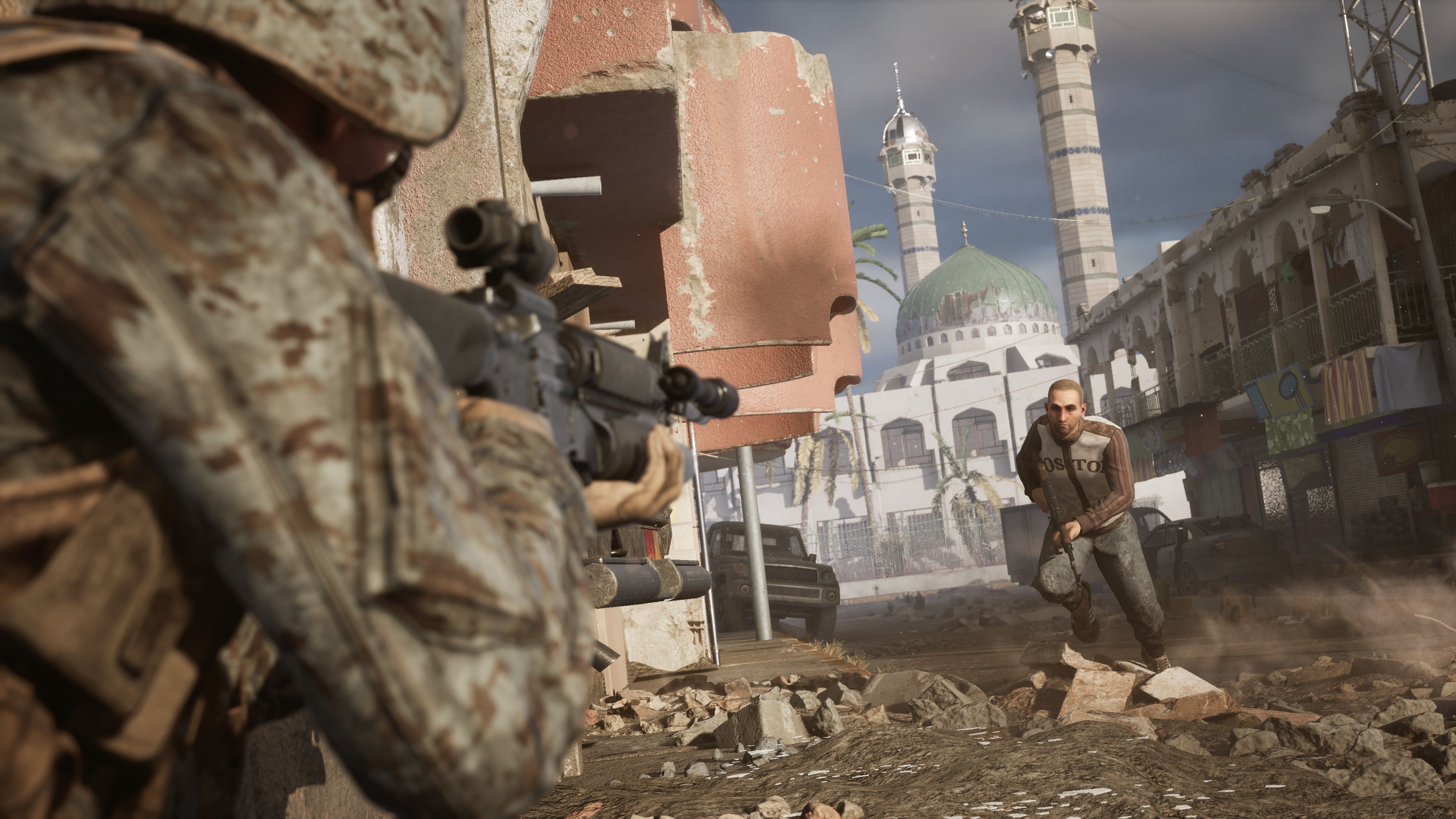Yesterday, Victura and Highwire Games announced the resurrection of Six Days in Fallujah, an FPS that was cancelled 12 years ago and had since been considered dead. I’m not sure what the media literacy landscape was like in 2009 - I turned 14 in November of that year - but in 2021, I just can’t see a reason to develop a video game based on real-life accounts of a war steeped in unspeakable atrocity. The format and premise seem diametrically opposed to one another in some extremely harmful ways.
Fallujah was the location for two battles in 2004, the latter of which has since become known as the bloodiest of the entire Iraq War - for American troops. Highwire Games, the studio developing Six Days in Fallujah, is located in Seattle. The developer claims to have consulted with over 100 people, from US marines to Iraqi insurgents, to civilians who were present during the Second Battle for Fallujah. The proportion each demographic represents hasn’t been made clear. I think all of the above information qualifies to beg the question of why a video game like this could possibly be necessary far more so than it does to justify it being made at all.
For those unacquainted with what happened at Fallujah, an assault on the city was authorized by the Iraqi Interim Government - which had been instated by the US - after four private military contractors were ambushed and killed by local insurgents. According to Joel D. Rayburn, author of “The US Army in the Iraq War,” this assault was largely instigated as a result of political pressure from Washington, as opposed to being a decision made by the commanders on the ground.
Although exact figures are disputed, it is estimated that the US, the UK, and Iraq entered the battle with a combined force of 13,350 troops. The local insurgents were about 4,000 strong.
The body counts are far more grim. According to Alexander Mikaberidze's "Conflict and Conquest in the Islamic World: A Historical Encyclopedia," 95 US soldiers were killed, while a further 560 were wounded. Up to 11 Iraqi soldiers on the US’ side died, as well as four soldiers from the UK. This adds up to a total of up to 110 people.
Mikaberidze's book also states that some 1,200 to 1,500 insurgents on the other side were killed, while another 1,500 were taken prisoner. Iraq Body Count estimates that up to 670 local civilians lost their lives in the conflict, while Time reports that approximately 800 civilians acting on behalf of the Red Cross were killed.
A report from Iraq Body Count principal researcher Lily Hamourtziadou puts these figures into context:
“On the night of 4 April 2004, American forces launched a major assault. 616 of the approximately 800 reported deaths were of civilians, with over 300 of these being women and children … The first 600 deaths included a breakdown showing that 160 women and 141 children under the age of 12 were among the dead.”
Those figures represent the First Battle for Fallujah. A separate report from IRIN states that “more than 700” bodies were recovered in the aftermath of the Second Battle for Fallujah, over 550 of which “were women and children.” According to the same report, “a very small number of men were found in these places and most were elderly.”
I ask you again: who does a game based on these figures serve?
During the battle, over 60 mosques were destroyed, the majority of which were reported to have been used as arms caches. Having someone hold R2 to detonate an explosive attached to a place of worship containing guns is not just stupid, but actively harmful. Ludonarrative dissonance is one thing - the concept that there is a disconnect between a game’s narrative and gameplay - but having people destroy mosques based on the pretext that they are “terrorist” hubs is hugely irresponsible, if not downright reprehensible. Given that Six Days in Fallujah has stated that it’s going to depict the war faithfully, this is something that the devs have obliged themselves to include, lest their “true to life” selling point come undone.
That’s not the only case where the decision to include or exclude a major part of this tragic and atrocious war holds weight. There’s also the case of white phosphorus, which was reportedly used indiscriminately at one point during the Second Battle for Fallujah - a battle that saw the breaching of over 70 articles of the Geneva Convention. According to a CBC report from 2005, American ambassador to London Robert Tuttle sent a letter to The Independent, which clearly stated, “US forces do not use napalm or white phosphorus as weapons.”
The same report includes a contradictory statement from Lieutenant Colonel Barry Venable, who told the British Broadcasting Corporation, “White phosphorus is a conventional munition. It is not a chemical weapon. They are not outlawed or illegal." Venable also explicitly stated that white phosphorus “was used as an incendiary weapon against enemy combatants,” despite claims from the US government that it was exclusively used to provide smokescreens or flashes of light.
It’s worth drawing attention to the obvious irony here, in that the Iraq War began in March 2003 specifically because of the Bush administration's claim that Saddam Hussein was in possession of chemical weapons. White phosphorus, deployed by the US troops and used indiscriminately against civilians, is one such weapon. According to a Time report, one soldier is quoted as having said, “We don’t want to leave Fallujah. We want to kill them here.”
To this day, children in Fallujah are increasingly being born with congenital birth anomalies. Cancer is also far more prevalent than it used to be. According to the US National Center for Biotechnology Information, both of these phenomena can be attributed to “depleted Uranium contamination following the battles in the town in 2004.”
“Living in Fallujah now is living with insurgency, living with terrorism, living with air strikes and mortar attacks,” wrote Iraq Body Count principal researcher Lily Hamourtziadou in 2016, five years after the “end” of the Iraq War. “Living in Fallujah is living with hunger and disease. Living in Fallujah is living in fear and despair. Living in Fallujah means death in explosions, death by fire, by bullet and by water, by lack of care and lack of food. Death came to Tahsin Ali Abbas al-Saadi as he tried to report yet another battle; it came to 18-year-old Hussein Merhij al-`Ubaidi as he protested, in April 2003; it was death by fire for 15 men burnt to death for trying to escape Islamic State in April of this year, their bodies hanging hog-tied over the flames.
“Living and dying in Fallujah have changed little since 2003. The ‘city of mosques’ has been home to over 300,000, or roughly 1 per cent of Iraq's population; civilians and militia, Al-Qaeda and IS fighters, living, fighting, starving and perishing in violence, under siege or under sentence of death. Fallujah's deaths from violence are some five times higher than the national average: how many will have lost their lives in this latest battle will take time to ascertain. But one thing is already certain: once recorded and documented, their deaths will only be added to many thousands of other Iraqis in the memorial of this war, of its crimes and history. In that respect, Fallujah is not unique but simply worst among equals.”
I don’t know about you, but to me, this doesn’t sound like the kind of subject matter a first-person tactical military shooter where you “lead a fireteam through real-life encounters enabled by unique technology that simulates the uncertainty and tactics of urban combat” should be grappling with. I know that games are art, and that games are mature, and that games don’t need to be fun - The Last of Us Part 2 is absolutely harrowing. At the same time, I’m not sure rewarding tactical prowess with progression through a story, no matter how confronting it may be, is the most respectful way of addressing the fact that over 200,000 people were displaced from their homes in Fallujah during the two wars of 2004, or that children are still being born with anomalies and complications today due to the lingering Uranium.
I have a deep respect and appreciation for video games, but let’s leave this one to the documentarians. This is something that everybody should learn about. That doesn’t mean it’s something that everybody should actively participate in.

